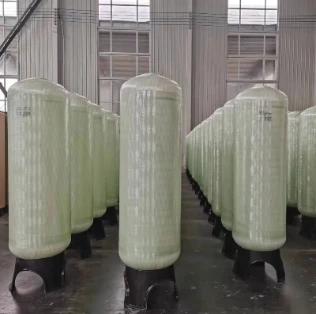loading...
- No. 9, Xingyuan South Street, Dongwaihuan Road, Zaoqiang County, Hengshui, Hebei, China
- admin@zjcomposites.com
- +86 15097380338
- Welcome to visit our website!
Innovative Solutions for Effective Water Filtration Systems and Vessels
Water Filtration Vessels Ensuring Clean and Safe Drinking Water
In an era where water pollution is a growing concern, water filtration vessels have emerged as essential tools for ensuring access to clean and safe drinking water. These vessels come in various designs and technologies, catering to different purification needs and water sources. This article delves into the significance of water filtration vessels, their various types, and how they contribute to better health and environmental sustainability.
The Importance of Water Filtration
Access to clean drinking water is crucial for public health. Contaminated water can harbor bacteria, viruses, parasites, and harmful chemicals that can cause a myriad of health issues, from gastrointestinal diseases to long-term chronic conditions. Water filtration vessels play a critical role in reducing these contaminants, thus safeguarding human health and overall wellbeing.
Moreover, as urbanization and industrialization lead to more pollutants entering our water systems, filtration technology becomes imperative. These systems not only make water safe for consumption but also contribute to reducing the environmental impact of bottled water, which is a significant source of plastic waste.
Types of Water Filtration Vessels
1. Activated Carbon Filters One of the most common types, activated carbon filters effectively remove chlorine, sediment, volatile organic compounds (VOCs), and taste and odor issues from water. These vessels use activated carbon processed to have small, low-volume pores that increase the surface area available for adsorption or chemical reactions.
2. Reverse Osmosis Systems These systems employ a semipermeable membrane to remove ions, molecules, and larger particles from drinking water. They are particularly effective at eliminating salts and are often used in areas with high salinity levels or for treating wastewater.
3. Ceramic Filters Known for their durability, ceramic filters can filter out bacteria and sediment. These vessels are made from natural materials and are often an eco-friendly choice. They are particularly popular in household applications and in areas lacking modern infrastructure.
4. UV Purification UV water filters utilize ultraviolet light to kill bacteria and viruses in water. This method does not involve any chemicals and leaves no residual taste, making it an excellent option for purifying municipal or well water.
5. Ion Exchange Filters These systems are primarily used to soften water by exchanging calcium and magnesium ions with sodium ions. This type of filtration is common in households with hard water, making it easier on plumbing and appliances while enhancing the drinking experience.
water filtration vessels

Choosing the Right Water Filtration Vessel
When selecting a water filtration vessel, several factors should be considered. The water source (municipal or well), the existing water quality (presence of sediment, chlorine, etc.), and specific health concerns (allergies to certain chemicals) all play vital roles in decision-making. Testing the water for contaminants is an essential first step to determine which filtration system will be the most effective.
Furthermore, the flow rate, maintenance requirements, and initial costs of the filtration system are important practical considerations
. Some systems require regular filter replacements, while others may involve more complex maintenance.Benefits of Using Water Filtration Vessels
1. Health By removing harmful contaminants, filtration vessels help in preventing waterborne diseases and reduce long-term health risks associated with chemical exposure.
2. Cost-Effective Although the initial investment might appear high, using a filtration system can save consumers money in the long run by reducing the need for bottled water.
3. Environmentally Friendly Filtering tap water not only reduces plastic waste from single-use bottles but also decreases the carbon footprint associated with bottled water production and transportation.
4. Convenience Many modern water filtration vessels are compact and designed for homes or offices, allowing easy access to clean water at any time.
Conclusion
Water filtration vessels represent an essential technological advance towards providing clean and safe drinking water. With a variety of filtration options available, individuals and communities can choose solutions that best suit their needs. As the world becomes increasingly aware of the importance of protecting our water resources, investing in water filtration technology is a proactive step towards ensuring health, safety, and sustainability for future generations. Clean water is not just a necessity; it is a fundamental human right that must be preserved.
-
The Rise of FRP Profiles: Strong, Lightweight, and Built to LastNewsJul.14,2025
-
SMC Panel Tanks: A Modern Water Storage Solution for All EnvironmentsNewsJul.14,2025
-
GRP Grating: A Modern Solution for Safe and Durable Access SystemsNewsJul.14,2025
-
Galvanized Steel Water Tanks: Durable, Reliable, and Ready for UseNewsJul.14,2025
-
FRP Mini Mesh Grating: The Safer, Smarter Flooring SolutionNewsJul.14,2025
-
Exploring FRP Vessels: Durable Solutions for Modern Fluid HandlingNewsJul.14,2025
-
GRP Structures: The Future of Lightweight, High-Performance EngineeringNewsJun.20,2025
